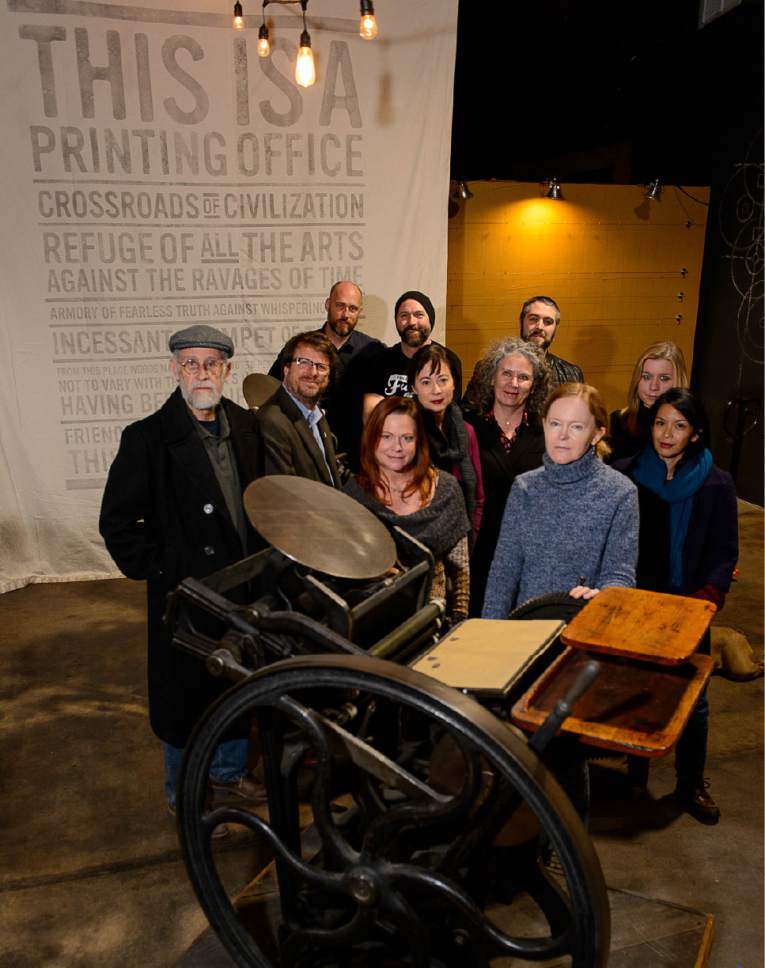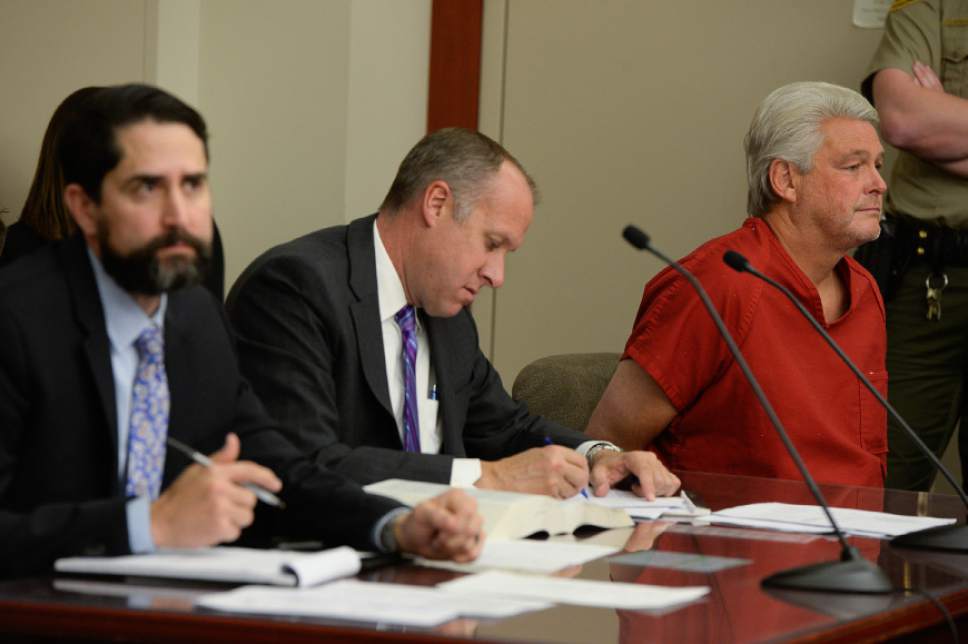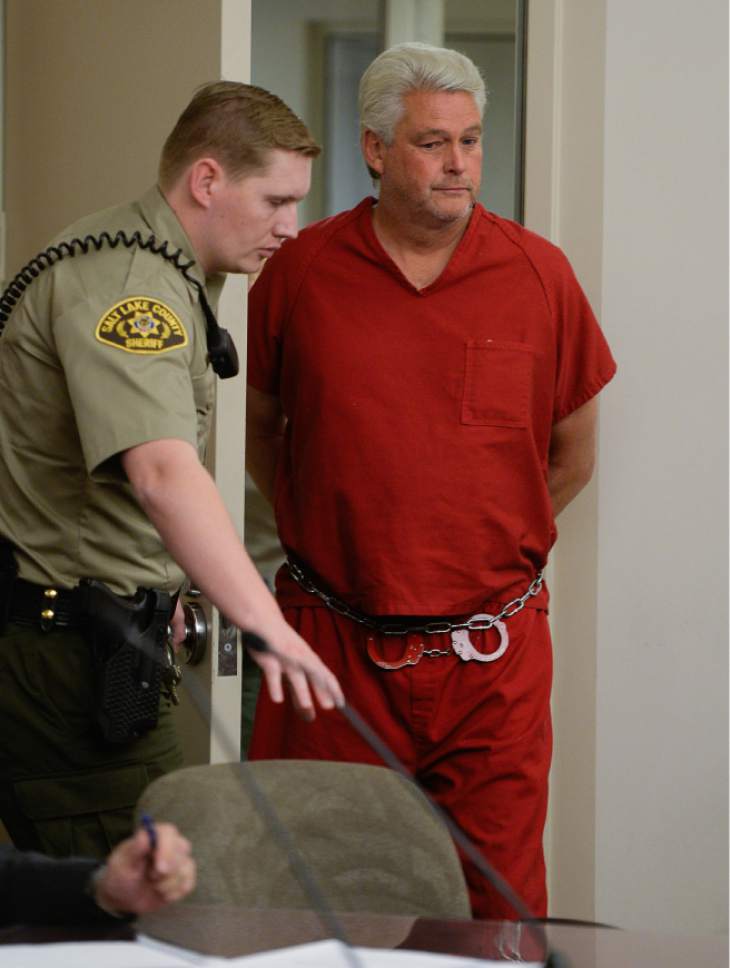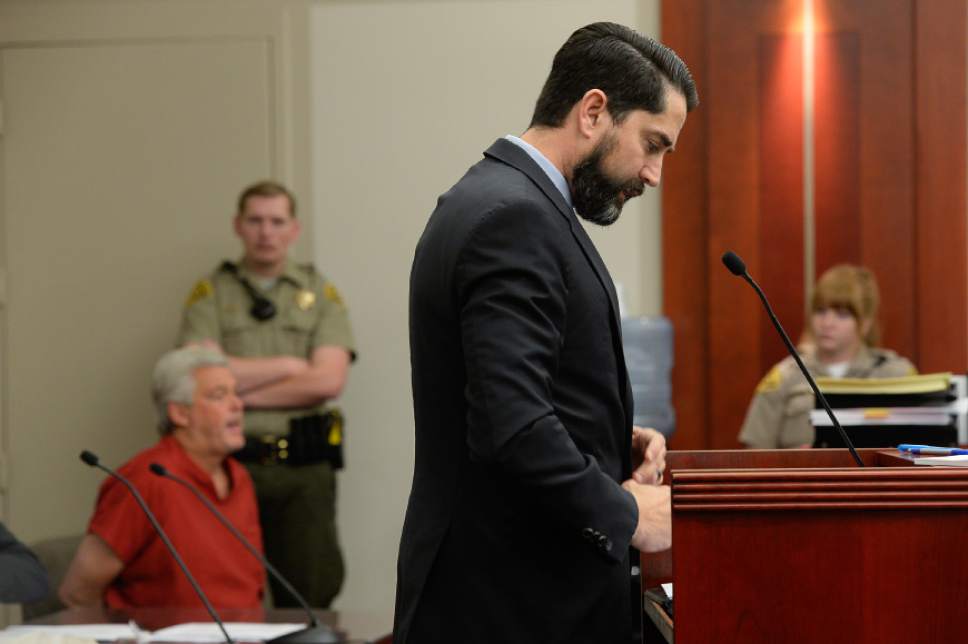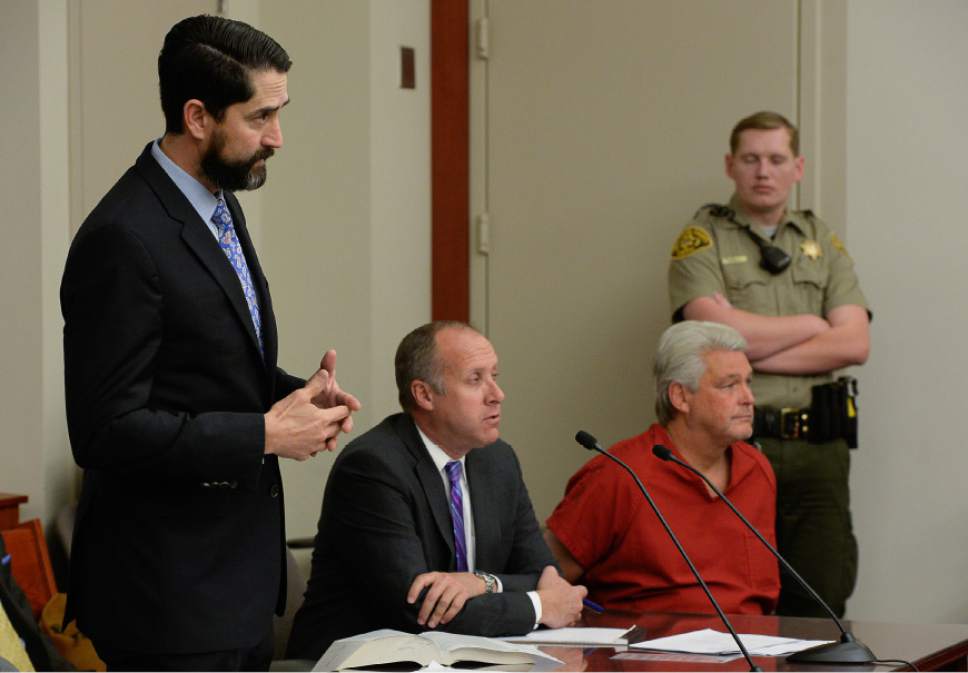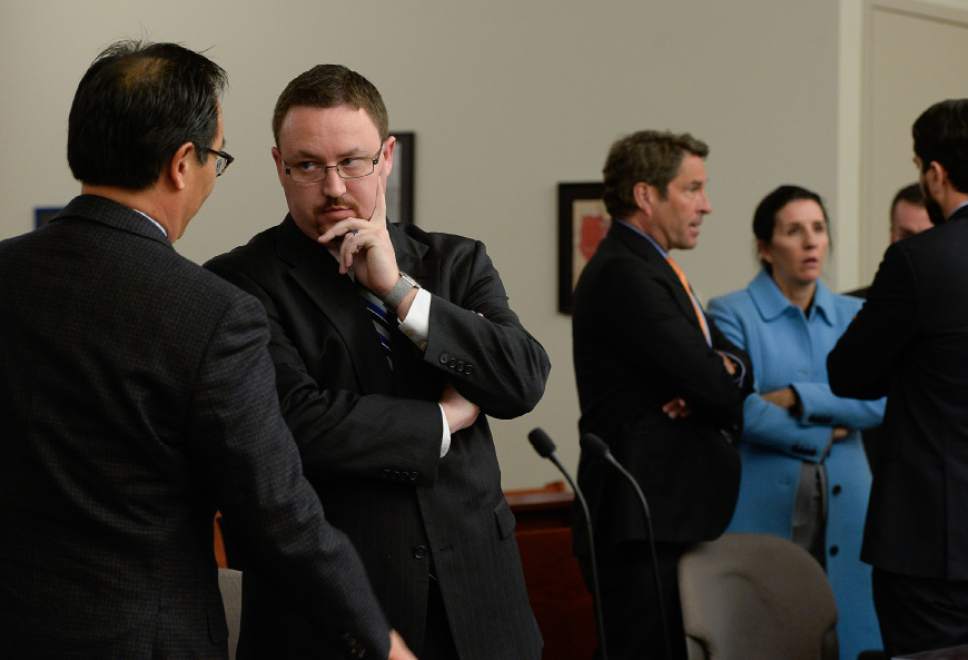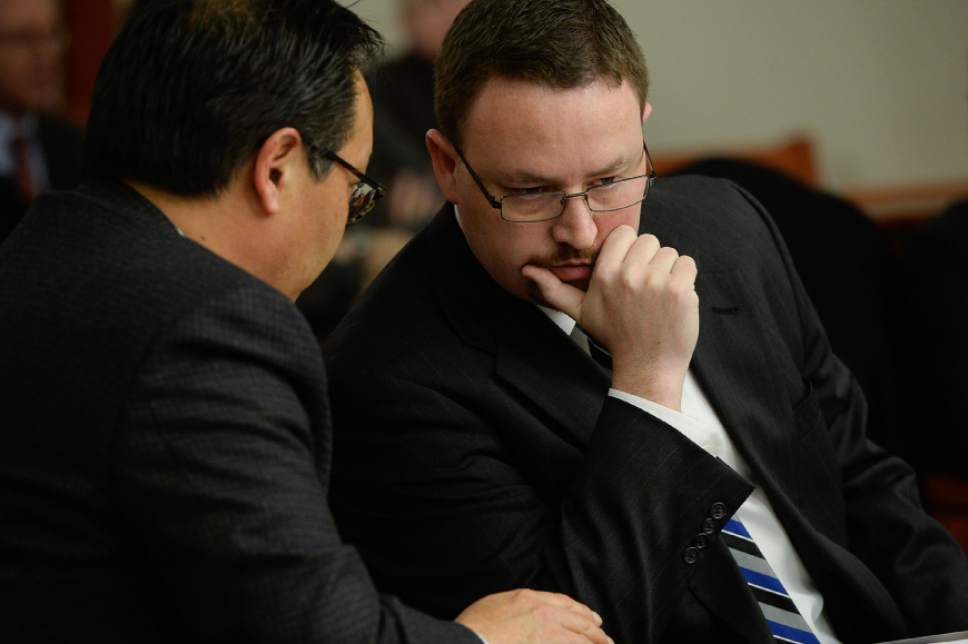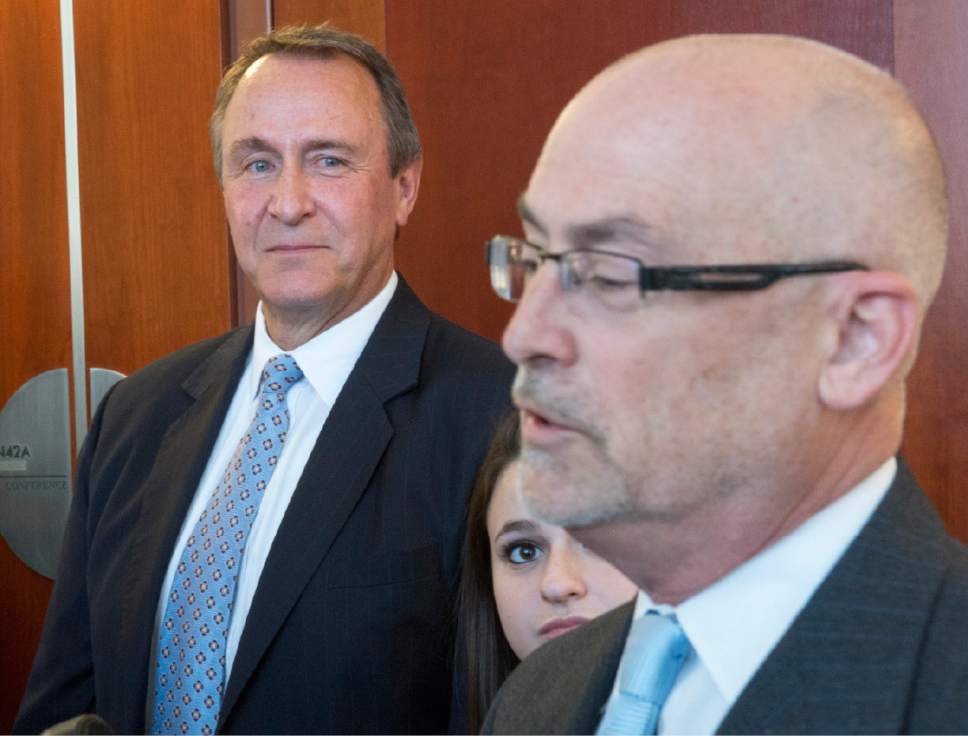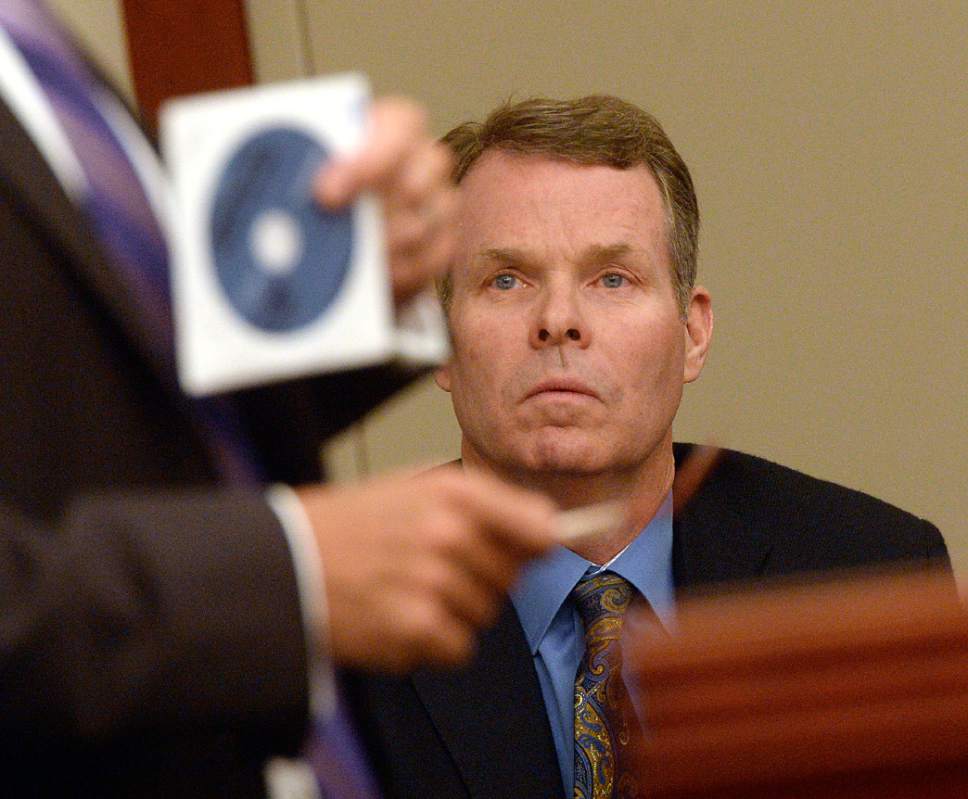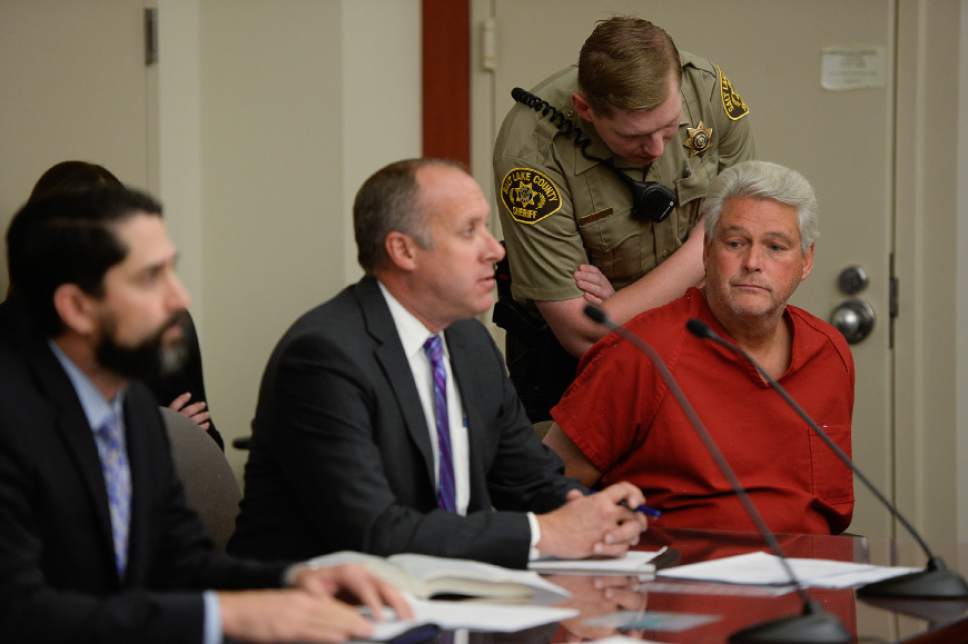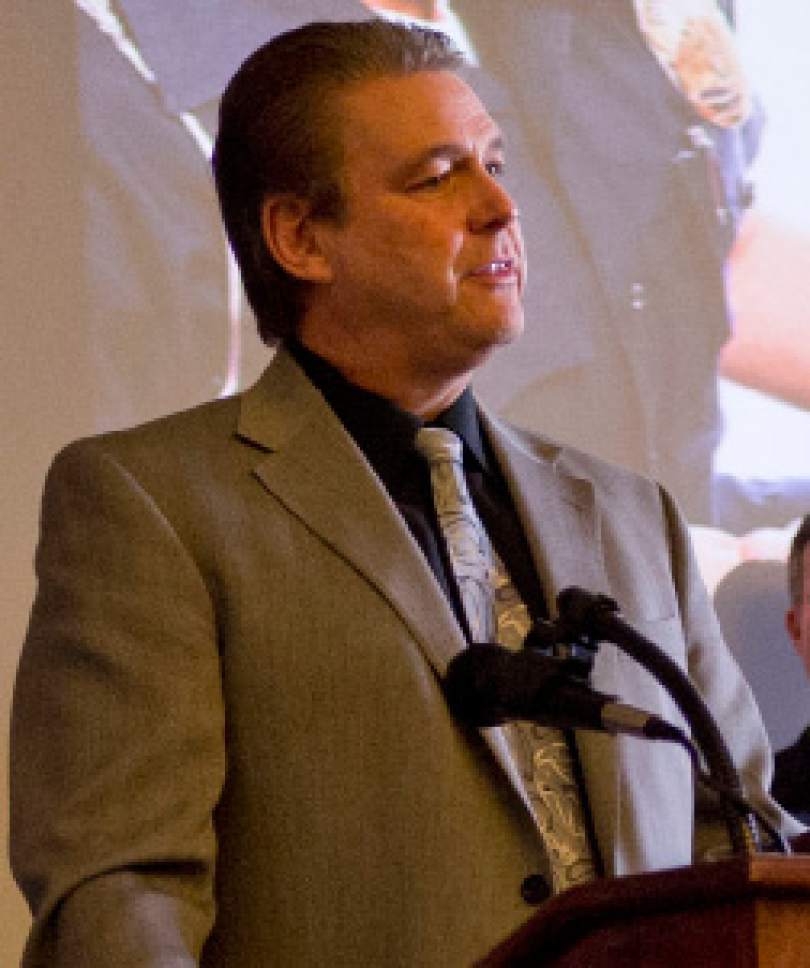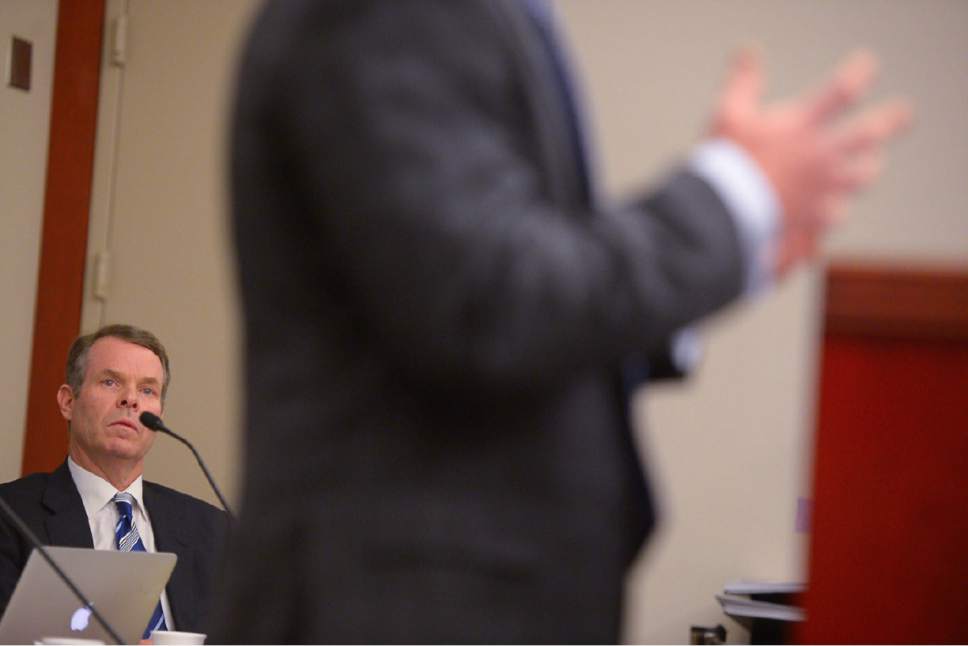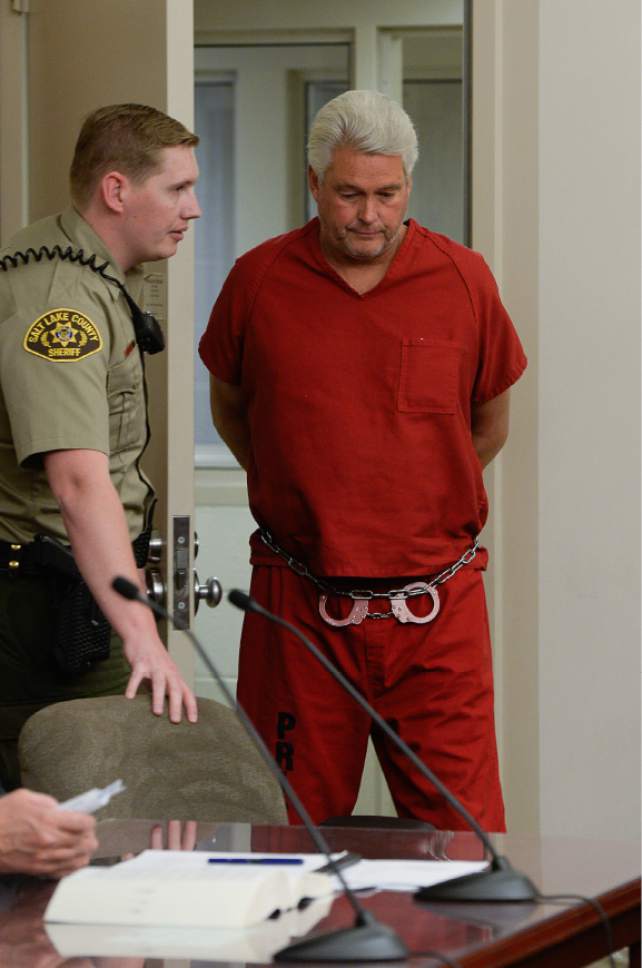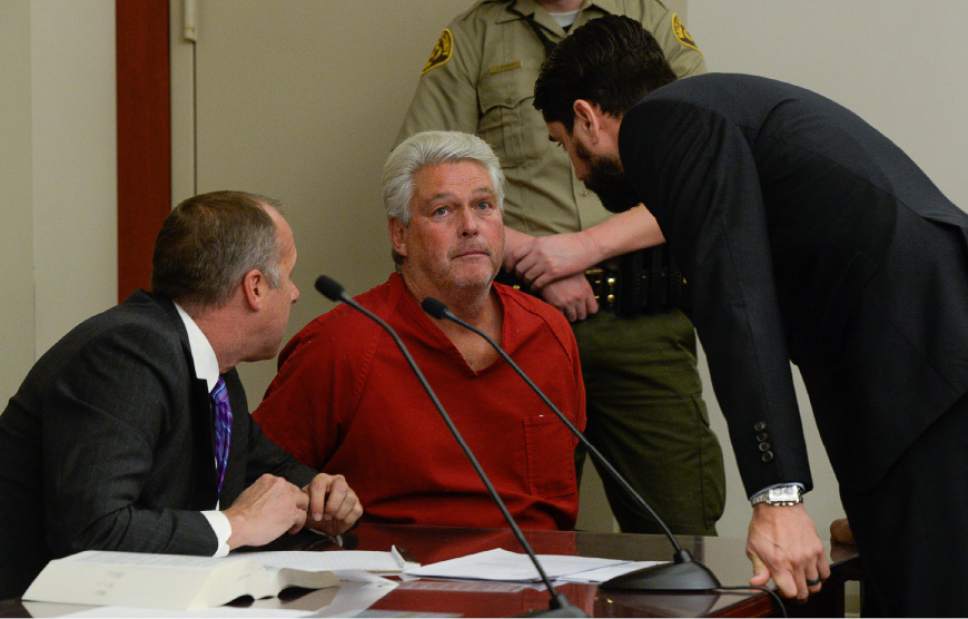Trent Nelson | The Salt Lake Tribune
Utah poets and writers will be reading Sunday at The Mandate Press in Salt Lake City as par
Francisco Kjolseth | The Salt Lake Tribune
Former Chief Deputy for Utah Attorney General Kirk Torgensen, right, appears at the Mat
Francisco Kjolseth | The Salt Lake Tribune
Former Chief Deputy for Utah Attorney General Kirk Torgensen appears at the Matheson Co
Francisco Kjolseth | The Salt Lake Tribune
Defense attorney Brett Tolman argues that the arrest of former Chief Deputy for Utah At
Francisco Kjolseth | The Salt Lake Tribune
Former Chief Deputy for Utah Attorney General Kirk Torgensen, right, appears at the Mat
Francisco Kjolseth | The Salt Lake Tribune
Prosecutors Blake Nakamura, left, and Sam Sutton confer with one another during an appe
Francisco Kjolseth | The Salt Lake Tribune
Prosecutors Blake Nakamura, left, and Sam Sutton confer with one another as former Chie
Rick Egan | The Salt Lake Tribune
Former Attorney General Mark Shurtleff and his daughter Annie listen as attorney Richard Van
Al Hartmann | The Salt Lake Tribune
Former Utah Attoney General John Swallow charged with more than a dozen bribery and public-
Francisco Kjolseth | The Salt Lake Tribune
Former Chief Deputy for Utah Attorney General Kirk Torgensen, right, appears at the Mat
Trent Nelson | The Salt Lake Tribune
Utah Chief Deputy Attorney General Kirk Torgensen
Trent Nelson | The Salt Lake Tribune
Former Utah Attorney General John Swallow, charged with bribery and public corruption, at a
Francisco Kjolseth | The Salt Lake Tribune
Former Chief Deputy for Utah Attorney General Kirk Torgensen appears at the Matheson Co
Francisco Kjolseth | The Salt Lake Tribune
Former Chief Deputy for Utah Attorney General Kirk Torgensen, center, appears at the Ma
Trent Nelson | The Salt Lake Tribune
Utah poets and writers will be reading Sunday at The Mandate Press in Salt Lake City as part of the national post-election Writers Resist movement a local Writers Resist. Nearly a dozen of those planning to read were photographed at The Mandate Press on Thursday.
Francisco Kjolseth | The Salt Lake Tribune
Former Chief Deputy for Utah Attorney General Kirk Torgensen, right, appears at the Matheson Courthouse in Salt Lake City on Tuesday, Jan. 10, 2017, alongside attorney's Brett Tolman, left, and Matt Lewis asking for an immediate release after prosecutors had him arrested to ensure he would show up for the February trial of former Utah Attorney General John Swallow. Judge Elizabeth Hruby-Mills ordered Torgensen be released, surrender his passport and appear in Utah on Feb. 8, 9, 10, to serve as a witness for prosecutors in Swallow's case.
Francisco Kjolseth | The Salt Lake Tribune
Former Chief Deputy for Utah Attorney General Kirk Torgensen appears at the Matheson Courthouse in Salt Lake City on Tuesday, Jan. 10, 2017, asking for an immediate release after prosecutors had him arrested to ensure he would show up for the February trial of former Utah Attorney General John Swallow. Judge Elizabeth Hruby-Mills ordered Torgensen be released, surrender his passport and appear in Utah on Feb. 8, 9, 10, to serve as a witness for prosecutors in Swallow's case.
Francisco Kjolseth | The Salt Lake Tribune
Defense attorney Brett Tolman argues that the arrest of former Chief Deputy for Utah Attorney General Kirk Torgensen was an outrageous use of the prosecutors power as Torgensen appears at the Matheson Courthouse in Salt Lake City on Tuesday, Jan. 10, 2017, asking for an immediate release after prosecutors had him arrested to ensure he would show up for the February trial of former Utah Attorney General John Swallow. Judge Elizabeth Hruby-Mills ordered Torgensen be released, surrender his passport and appear in Utah on Feb. 8, 9, 10, to serve as a witness for prosecutors in Swallow's case.
Francisco Kjolseth | The Salt Lake Tribune
Former Chief Deputy for Utah Attorney General Kirk Torgensen, right, appears at the Matheson Courthouse in Salt Lake City on Tuesday, Jan. 10, 2017, alongside attorney's Brett Tolman, left, and Matt Lewis asking for an immediate release after prosecutors had him arrested to ensure he would show up for the February trial of former Utah Attorney General John Swallow. Judge Elizabeth Hruby-Mills ordered Torgensen be released, surrender his passport and appear in Utah on Feb. 8, 9, 10, to serve as a witness for prosecutors in Swallow's case.
Francisco Kjolseth | The Salt Lake Tribune
Prosecutors Blake Nakamura, left, and Sam Sutton confer with one another during an appearance by Chief Deputy for Utah Attorney General Kirk Torgensen at the Matheson Courthouse in Salt Lake City on Tuesday, Jan. 10, 2017, who was asking for an immediate release after prosecutors had him arrested to ensure he would show up for the February trial of former Utah Attorney General John Swallow. Judge Elizabeth Hruby-Mills ordered Torgensen be released, surrender his passport and appear in Utah on Feb. 8, 9, 10, to serve as a witness for prosecutors in Swallow's case.
Francisco Kjolseth | The Salt Lake Tribune
Prosecutors Blake Nakamura, left, and Sam Sutton confer with one another as former Chief Deputy for Utah Attorney General Kirk Torgensen appeared at the Matheson Courthouse in Salt Lake City on Tuesday, Jan. 10, 2017, asking for an immediate release after prosecutors had him arrested to ensure he would show up for the February trial of former Utah Attorney General John Swallow. Judge Elizabeth Hruby-Mills ordered Torgensen be released, surrender his passport and appear in Utah on Feb. 8, 9, 10, to serve as a witness for prosecutors in Swallow's case.
Rick Egan | The Salt Lake Tribune
Former Attorney General Mark Shurtleff and his daughter Annie listen as attorney Richard Van Wagoner talks to the media after Shurtleff's scheduling hearing at the Matheson Courthouse, Monday, March 23, 2015. Third District Court Judge Randall Skanchy set a June 15 date for a hearing to determine whether Shurtleff will stand trial on bribery and corruption charges.
Al Hartmann | The Salt Lake Tribune
Former Utah Attoney General John Swallow charged with more than a dozen bribery and public-corruption counts watches as his defense lawyer Scott Williams argues before Judge Elizabeth Hruby-Mills in 3rd Distirct Court Wednesday July 13. Williams argued that the prosecution investigation withheld documents on DVD's that are tainted and contain privileged attorney-client information that the prosecution could have seen. He is asking the judge to dismiss the case.
Francisco Kjolseth | The Salt Lake Tribune
Former Chief Deputy for Utah Attorney General Kirk Torgensen, right, appears at the Matheson Courthouse in Salt Lake City on Tuesday, Jan. 10, 2017, alongside attorney's Brett Tolman, left, and Matt Lewis asking for an immediate release after prosecutors had him arrested to ensure he would show up for the February trial of former Utah Attorney General John Swallow. Judge Elizabeth Hruby-Mills ordered Torgensen be released, surrender his passport and appear in Utah on Feb. 8, 9, 10, to serve as a witness for prosecutors in Swallow's case.
Trent Nelson | The Salt Lake Tribune
Utah Chief Deputy Attorney General Kirk Torgensen
Trent Nelson | The Salt Lake Tribune
Former Utah Attorney General John Swallow, charged with bribery and public corruption, at a motion hearing in Salt Lake City, Friday December 9, 2016.
Francisco Kjolseth | The Salt Lake Tribune
Former Chief Deputy for Utah Attorney General Kirk Torgensen appears at the Matheson Courthouse in Salt Lake City on Tuesday, Jan. 10, 2017, asking for an immediate release after prosecutors had him arrested to ensure he would show up for the February trial of former Utah Attorney General John Swallow. Judge Elizabeth Hruby-Mills ordered Torgensen be released, surrender his passport and appear in Utah on Feb. 8, 9, 10, to serve as a witness for prosecutors in Swallow's case.
Francisco Kjolseth | The Salt Lake Tribune
Former Chief Deputy for Utah Attorney General Kirk Torgensen, center, appears at the Matheson Courthouse in Salt Lake City on Tuesday, Jan. 10, 2017, alongside attorney's Matt Lewis, left, and Brett Tolman, as they ask for an immediate release of Torgensen after prosecutors had him arrested to ensure he would show up for the February trial of former Utah Attorney General John Swallow. Judge Elizabeth Hruby-Mills ordered Torgensen be released, surrender his passport and appear in Utah on Feb. 8, 9, 10, to serve as a witness for prosecutors in Swallow's case.


